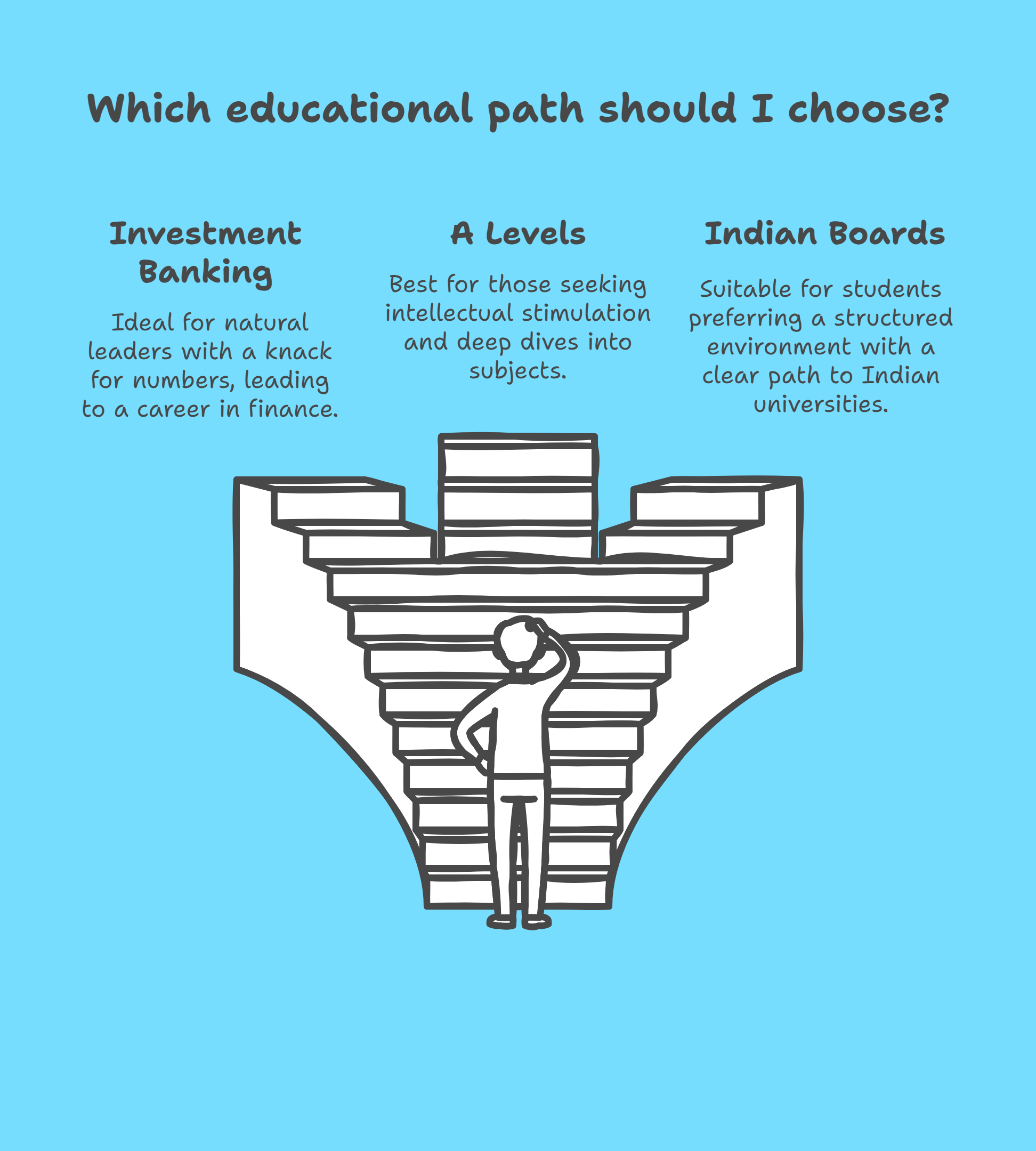The pressure cooker of post-secondary planning can feel overwhelming. Three distinct paths often emerge for ambitious students: diving straight into the high-stakes world of investment banking, pursuing the globally recognized rigor of Cambridge A Levels, or navigating the familiar terrain of Indian boards. Which is right for you?
Let's unpack the unique advantages and drawbacks of each, offering a compass to guide your journey.
The Allure of Investment Banking
The financial world beckons with the promise of adrenaline-pumping deals and hefty paychecks. Investment banking can be a thrilling, albeit demanding, entry point into the world of finance.
Think long hours, steep learning curves, and cutthroat competition. However, the rewards can be substantial, both financially and professionally. For those driven by deal-making and market analysis, the intensity can be intoxicating.
- Pros: High earning potential, rapid career progression, exposure to complex financial transactions.
- Cons: Demanding work-life balance, high-stress environment, requires strong quantitative and analytical skills.
The Rigor of Cambridge A Levels
Cambridge A Levels offer a globally respected curriculum known for its depth and academic rigor. This pathway equips students with critical thinking skills and specialized knowledge, opening doors to universities worldwide.
A Levels provide a strong foundation for a wide range of undergraduate programs, from engineering to humanities. However, the intensity of the program requires dedication and self-discipline.
- Pros: Global recognition, in-depth subject exploration, prepares students for university-level study.
- Cons: Requires significant self-study, can be expensive, intense workload.
The Familiarity of Indian Boards
Indian boards, like CBSE and ISC, offer a familiar structure and curriculum, often aligning with national entrance exams for Indian universities.
This pathway offers a structured approach to learning and a well-established support system. While some may perceive it as less globally oriented, it offers a solid foundation for higher education within India.
- Pros: Familiar structure, strong support system, aligns with Indian university entrance exams.
- Cons: May be perceived as less globally competitive, less focus on independent research and critical thinking.
Making the Right Choice: A Personalized Approach
No single path is universally "best." The optimal choice depends on your individual aspirations, strengths, and learning style.
Are you a natural leader with a knack for numbers? Investment banking might be your calling. Do you crave intellectual stimulation and deep dives into specific subjects? A Levels could be your ideal match. Do you thrive in a structured environment with a clear path to Indian universities? Indian boards might be the most comfortable fit.
Consider your long-term goals. Where do you see yourself in five years? Ten? Visualizing your future self can illuminate the most suitable pathway.

A Final Thought
Ultimately, the decision rests with you. Research thoroughly, talk to mentors and professionals in each field, and reflect on your own strengths and passions. The journey is yours to shape.
Dreaming of a finance career? Start with Investment Banking Certification with Jobaaj Learnings.
















